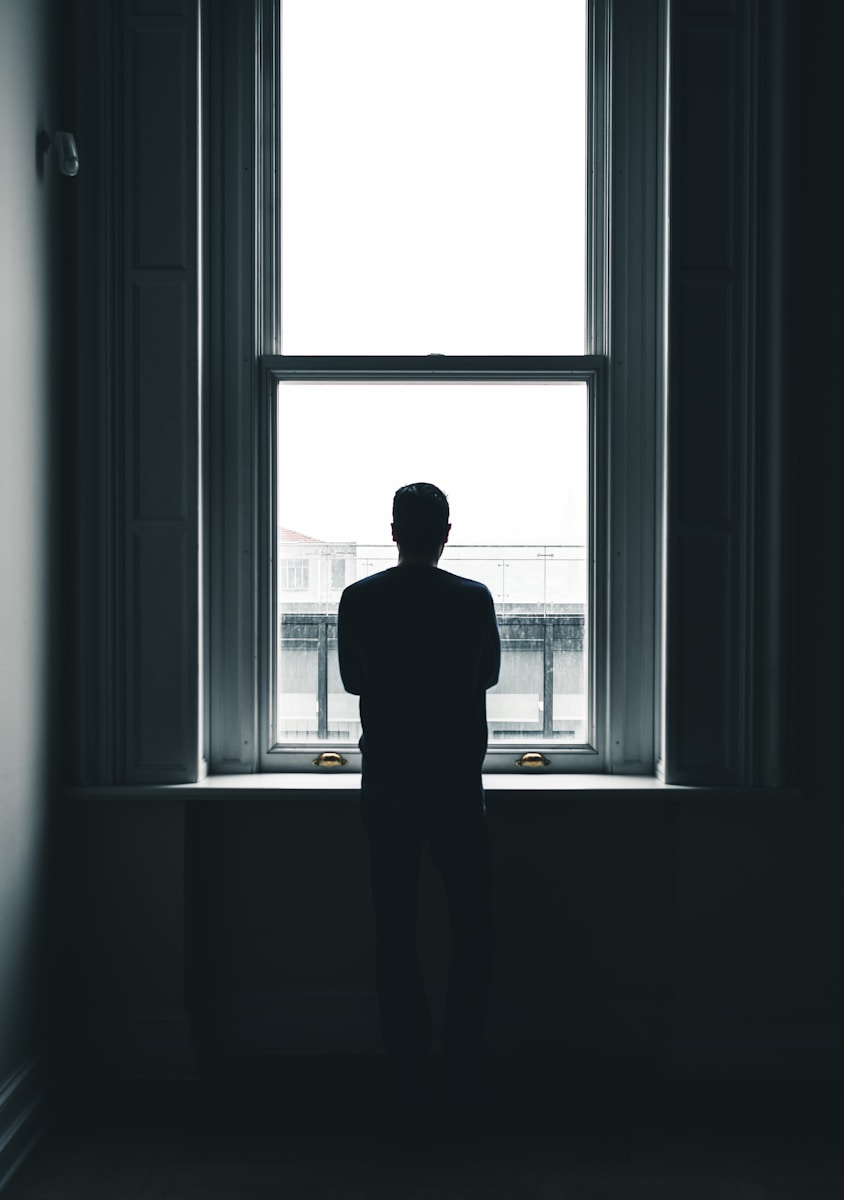The White House — February 2020
W hen he’s out on the campaign trail, The Bad King basks, luxuriates in the warmth and adulation of the crowds. They repeat his chants, cheer his sloganeering, love his extemporaneous attacks on his enemies—establishment politicians, the Deep State libs and those in the media whom the most ardent among his supporters perceive equally, in a self-identifying way, as their own personal enemies. They view him as the apostle of a new faith, the catechism of which—voiced through a loud and vocal dissent—is a profound cynicism and distrust of the government, and a totally noncritical acceptance of his dirty, hate-filled politics. That is why his populist rally speeches are so long, lack fundamental coherence, and tend just to ramble from one disconnected point to another.
He exults in the positive affirmation coming back to him from the simple, disaffected, rural Americans in the red “Make America Great Again” hats. They look on him—ironically, notwithstanding his wealth and privileged background—as their savior, their voice speaking out against a government that has been largely deaf to their demands. In his perverse, twisted, and confused way, he interprets the love he receives—in its deceptive and misleading, almost childish manifestation—as recompense to a son who (after being bailed-out of numerous financial failures with Daddy’s money) feels in his shadowy heart that he never quite measured up in his father’s disapproving eyes.

The president of the United States is now totally isolated. He has no relationship with his wife, Queen Slovia—they sleep in separate rooms, in separate beds—and none with his youngest son by her. He is a bad husband, and a bad father. He has no real friends—just a bunch of toady sycophants who tolerate his bombast and narcissism for personal and selfish reasons—the chance to trade on (make money from) their proximity to the (second) most powerful man in the world. It is a ruthless, almost diabolical Mephistophelean pact with the devil that Republicans have been more than eager to make in the interest of gaining and keeping political power.
Just a year earlier the president suffered a humiliating political defeat in a border deal showdown with the Democrats, and the powerful lady Speaker of the House, Nancy Pelosi, in which he forced a thirty-five-day shutdown of the government (causing federal government workers to go a month without pay) just to get a five-billion-dollar commitment of government money to build his border wall. The Bad King and the Republicans were eventually forced to bow to public pressure. The government was reopened, and a deal was subsequently struck, but there was no money for the president’s border wall. Media commentators on the hard right ridiculed him for selling-out his base and “caving” to the Speaker. For the last year, the president has been fighting a rear-guard action against the Democrats who—after impeaching him in the House in late 2019—now want to start oversight hearings on his abuses of power.
The Bad King is now in a deep gloom, living in constant fear and paranoia, subsumed in the belief that his political enemies (Democrats and the Deep State) are all out to get him—discredit his administration, de-legitimatize his election and his presidency. Alone at night in his private quarters, tucked into bed with his paranoia and a consoling bag of cheeseburgers, the president of the United States surfs—on three separate large screen TV panels—the cable news shows, watching the hated CNN and the equally hated MSNBC (Rachel Maddow and Lawrence O’Donnell), but mostly following the friendly Fox News. Speaking on his unsecured phone with friends, advisers, and followers until well into the wee hours of the morning (the Fox News opinion anchor Sean Hannity being a regular feature in this nightly gaggle) they all tell him the same thing—that a Deep State cabal of Democrats, enemies in the left-wing media, the FBI, the broader intelligence community (CIA included) and the DOJ are all out to get him, enjoined in a conspiracy with the firm goal to obstruct his agenda (presuming that the hodgepodge, alternative reality of MAGA policies can even—in the remotest way—be dignified under the term agenda), disgrace him, compromise his legacy and his place in the history books, and possibly, after he leaves office, put him in prison.
The president, though, is combative. His natural tendency is to fight back, lash out and attack his enemies. From the podium, he shakes his fist at the Democrats, calls out the media. His daily Tweets are now aimed at attacking and tearing down (slandering) his Democrat enemies. The polls show him at the lowest favorability rating of his presidency—58 percent of polled voters say they would not vote for, support him, in the coming election. But his base—a solid 36 percent of Americans in the South and “Fly Over Country” in middle America—are still supporting him. The more virulent the attacks on him by the press, the more hostile the daily criticism by Democrat presidential candidates vying for the party’s nomination, the louder the calls for him to resign—what the MAGA hat supporters now blithely call the derangement syndrome—the stronger his support becomes within the radical right-wing of the party, with racists like the macabre Stephen Miller, his senior policy advisor on immigration (known derisively as The Gestapo or The Undertaker), and the alt-right, white supremacist, ethno-nationalist (Steve Bannon) faction of the Republican party becomes.
Many so-called establishment (moderate) Republican candidates coming up for re-election despise him, but they are afraid of his base, afraid to openly oppose the sitting president for fear of a blistering Tweet storm and a primary challenge in the coming election. A majority in the country now believe that Tsar Peter and his Russian cronies assisted and were instrumental in putting The Bad King in the Oval Office.
The U.S. president is aware of the allegations against Tsar Peter—that his government was likely responsible for the Moscow apartment bombing that killed one hundred people, that the FSB (the successor domestic intelligence service to the infamous KGB) tried to make it look like a terrorist attack by Chechen terrorists bent on seeking revenge for the ravages in their country, that his government, acting through the FSB, was responsible for the hostage taking at the school in Beslan, and the terrorist attacks in Chechnya that were used as a pretext to send Russian troops into South Ossetia. And that he killed journalists and activists who opposed him and his Russia party. These were crimes and acts of terror the Russian president committed against his own people.
The Bad King, of course, never publicly acknowledges Tsar Peter’s crimes against Russian citizens, his relentless persecution of political enemies, the murders of journalists like Anna Politkovskaya and the activist critic Boris Nemtsov, as well as the 2004 poisoning of critic, Alexander Litvinenko, and the later (2018) poisoning of Sergei Skripal and his daughter in a London park, an act of violence for which The Bad King delayed the imposition of sanctions later passed and approved by the U.S. Congress. The ever solicitous, always subservient, U.S. president is quick to come to the defense of his Kremlin friend—even in front of the interests of his own country. And, of course, nobody can forget his humiliating, kowtowing, bowing, and scraping (some would say treasonous) performance in front of Tsar Peter in Helsinki.
Billy and Rosie enroute to Washington
Again, Billy makes a cursory scan of the plane’s instrument panel, checks the plane’s compass heading, and then does a quick calculation in his head (air speed and time in flight), “We’re still about 500 miles out from Dulles International Airport,” he says.
Rosie sits up, makes a quick scan of the far away horizon, and relaxes back in her seat. “Okay, Billy, now finish your story.”
Without pause, and somewhat to Rosie’s horror, Billy goes on in a dispassionate and professional sounding—almost casual way—to describe the steps he had taken to kill the judge who had dismissed Mercy’s suit as his way to extract the revenge he’d promised himself to deliver for her.
“The judge was totally corrupt,” Billy explains, “. . .he was reported in the press to be under federal investigation by the FBI and Department of Justice in Washington for political corruption, soliciting and accepting bribes and retainers for cases in which he was involved. There was never a grand jury proceeding, so it was not likely—given his power and influence—that he would ever be indicted, called to account in a court of law for his lawlessness and corruption.”
Rosie is blunt and to the point. “So, you decided to take the law into your own hands, set yourself up as the judge and the jury?” It was more a statement—indeed, an accusation—than a question.”
Unfazed, Billy goes on in his matter-of-fact manner. “I used my lock pick set to let myself into a vacant seventh floor apartment about eight blocks from the target building. From my balcony perch I had an unobstructed line of sight view to the target area—a distance of roughly a thousand yards, an easy shot.”
Billy smiles. “He had a girl in the room with him—a beautiful African American prostitute. They were standing together right in the center of the living room. I would run into her again,” Billy says as an aside.
Billy describes the scene to Rosie. “I watched the asshole unzip his pants and flop his dick out. The girl took off her blouse and her bra, undressed down to her panties, and then went down on her knees in front of him.” Billy stops and grins. “What happened next was like watching a porn movie.” He laughs. “I felt like a voyeur. It was almost embarrassing.”
“Then what happened,” Rosie asks curiously.
Billy goes on. “I settled down behind the Chey-Tac, my favorite long-range rifle, activated the range finder, calibrated the sight, and then waited. A moment later the judge came out through the glass patio door with a plate of steaks.” Billy describes the girl as standing at the open patio door, still undressed, when he squeezed trigger—and how, just a second later, the glass and the girl were splattered with the judge’s blood and brain matter.
Rosie cringes. “Oh my god, Billy, this is horrid.”
Billy gets a grim satisfied smile. “It was a perfect head shot. It was mid-afternoon, there was no bright sunlight to deal with, there was no wind, and the conditions were ideal.”
Rosie is horrified. “Billy, that’s awful—that’s just murder,” she objects.
Billy is firm. “Yeah, it is awful, too, what they did to Mercy. I made up my mind that Mercy would have her revenge on these bastards. This was just payback for the injustice done to an innocent girl. Guys like the judge and the Russian mobster never have their day in court because—like I’ve said many times before—they have the money to buy the best justice our crooked legal system has to offer.”
Rosie makes a face. “That’s so cynical, Billy,” she says.
“Maybe,” he responds. “But that’s how it works here, Rosie. The people who have the money make the rules. You know that yourself. You have been around Washington long enough. And that’s exactly The Bad King’s appeal. He tells his angry supporters that the system is rigged against them, and—at least in that, if nothing else—he’s right.”
Billy pauses for effect. “Just look, Rosie, at what we see happening every day in America—across the country. If you are a poor black person and you get stopped for a minor infraction, a malfunctioning taillight, you can end up dead. That is one standard of justice in America today. If you are a wealthy white man, a Wall Street banker living in a penthouse in Manhattan—who has illegally foreclosed the mortgages on millions of homes—there is a totally different standard of justice for you, one of privilege and protection that almost guarantees you’ll never see the inside of a prison.” Billy is thinking specifically of the current treasury secretary, Steve Mnuchin.
Billy cites the case of Jeffrey Epstein, the wealthy socialite playboy, and friend of the president, who had been granted a sweetheart plea deal in a Florida case where he had been convicted of molesting and having sex with forty underage girls.
Billy looks at Rosie. His anger boiling up. “Epstein got only thirteen months of what was basically just supervised probation. He was let out during the day to go to his Palm Beach office. At night he returned to a luxury jail cell where he had a computer, TV, and the unlimited use of a phone. Republicans, and the god-less evangelicals who support them, call this justice.”
Billy is now almost in a rage. “If it had been someone other than a wealthy, well connected friend of the president he would have gotten forty years with no probation.” Billy is bitter. “The current occupant of the White House—back in the nineties—was originally named along with Epstein as a co-defendant in a case involving a 12-year-old plaintiff. But the case was dismissed, and the charges mysteriously dropped.”
He goes on. “The Florida attorney general who approved the generous Epstein plea deal is now in the president’s cabinet,” Billy adds. “These elitist ass holes—because they have the money, the power, and the influence—think they can do anything and never be called to account. That is how our system of crony capitalism and privilege for the wealthy operates. I know, Rosie, because I have seen it up close. I have heard some of the stories that Sam has to tell. I’ve seen the injustice delivered by the Supreme Court” He laughs. “What I call The Star Court.”
Rosie breathes a heavy sigh. “I know about the Florida Epstein case,” she says, “and that was no question a gross miscarriage of justice.” She reminds Billy, however, that Epstein was later arrested (2019) in New York on sex trafficking charges, and currently is in jail awaiting an appeal on a conviction that carries a forty-five-year sentence for sex trafficking charges.
“But you killed a man, Billy,” Rosie still fiercely objects. She is having trouble reconciling the two different Billys—the one who is so kind toward her and concerned about her welfare, and the other one who talks so casually and brutally about killing people—even if they deserve to be killed.
Billy is unrepentant. “I killed a criminal in a judge’s robes who deserved killing, a criminal that this legal system would never have brought to justice. All I did was even the scales, Rosie. But I was not finished. I still had one more score to settle to get justice for Mercy and my friend, Razzy.”
The dire, hate-filled look on Billy’s face confirms for Rosie the vengeance that he still feels in his heart.

